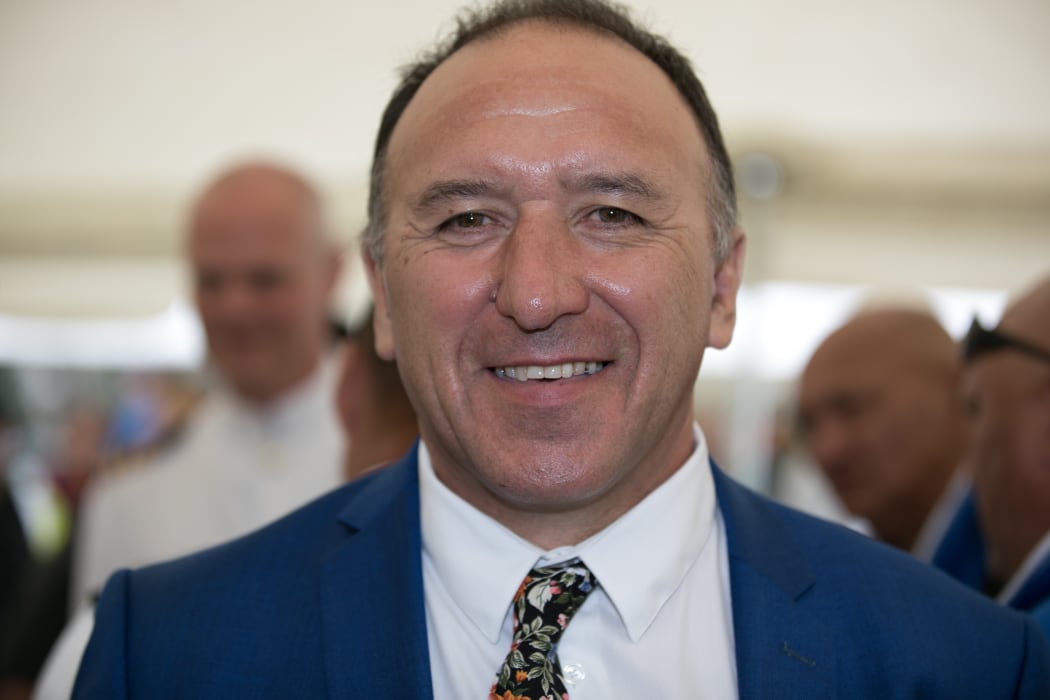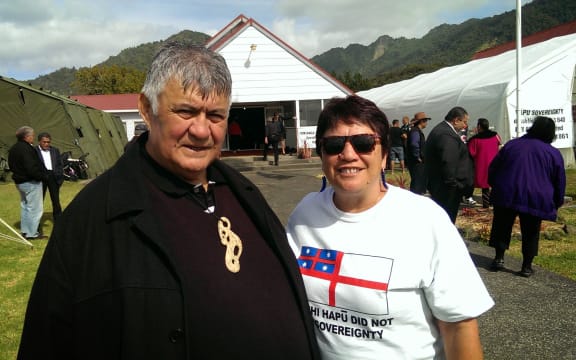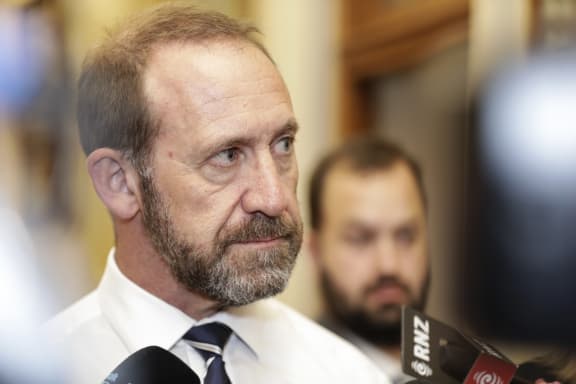Ngāpuhi people are about to vote on a new plan for Treaty negotiations but a significant number of hapū have already declared they want no part of it.

Ngāti Hine leader Pita Tipene Photo: RNZ
A split has also emerged this week in the leadership of the hapū alliance, Te Kotahitanga.
The co-leaders of the hapū alliance, Pita Tipene and Rudy Taylor, have worked together for years on hapū land claims with the Waitangi Tribunal process.
More recently they have worked with the original mandate leaders, Hone Sadler and Sonny Taniera Tau, on a working group and roadshows convened by the Treaty Negotiations Minister Andrew Little.
The goal has been to design a new representation model or mandate, for the iwi to enter negotiations with the Crown, after the tribunal found the original mandate undermined hapū autonomy.
But a Te Kotahitanga hui this week resolved that Mr Taylor, Mr Tipene and their lawyer Jason Pou should step down from the working group because the plan it had come up with was unacceptable.
Mr Tipene confirmed he was quitting.
"It was untenable for any of us to be involved with it anymore, because it simply sent out the wrong message that Kotahitanga supported the evolved mandate proposal.
"With the roadshow imminent and myself and Rudy and Jason sitting at the front table, it was saying to the unwitting or uninitiated that Kotahitanga was in full support of the proposal, when it wasn't."
The plan provided for one commercial settlement to a single Ngāpuhi entity that would then apportion the quantum to hapū collectives, while Te Kotahitanga wanted six separate regional settlements, he said.
Mr Tipene and Ngāti Hine people have never agreed with the minister's desire for a single commercial settlement for Ngāpuhi.

Rudy and Kay Taylor at Tuhirangi Marae. Photo: RNZ / Lois Williams
The sub-tribe has an unhappy history with the Ngāpuhi runanga headed by Mr Tau because it held their joint fisheries' settlement and has not agreed to split it.
But now the working group's job was effectively over, Mr Tipene said.
But Mr Taylor said there was still work for the group to do and he himself had the support of his kaumātua to stay on as a member.
"I was very clear what I said to him: 'Pita, you don't need to walk away from the table'," Mr Taylor said.
Mr Taylor said he did not accept that the hapū alliance which had appointed them to the minister's group now wanted them to resign.
"That resolution was sprung on the hui at the end when people were leaving, and a lot more would have come and voted against it if they'd known it was going to happen," he said.
My Taylor, a long-term Labour supporter, has at times been accused of a conflict of interest between the views of his Hokianga hapū and a desire to see Mr Little succeed in bringing Ngāpuhi to the settlement table.
But he rejected that.
"I've never hidden my agenda but I do know this: First and foremost our people must come first before my politics."
The minister's working group minus Mr Tipene will front a new series of mandate hui around Aotearoa and Australia starting in Hokianga this weekend, answering questions about the proposal and the voting process.
For the new mandate model to be accepted by the Crown, it will need support from 75 percent of Ngāpuhi individuals and 65 percent of the iwi's 110 officially-listed hapū - a level recommended by the Tribunal.
Hone Sadler, who chairs the mandate board (TIMA), said he was confident the individual votes would reach the threshold, but less certain of the hapū vote.
He believed the resolution that Te Kotahitanga should pull out of the working group was not valid.
Senior Whangaroa kaumātua Anaru Kira, who attended the hui, said he represented 22 hapū.
Whangaroa opposed the new mandate model and he supported the move to pull Te Kotahitanga off the minister's working group, Mr Kira said.
"They (Kotahitanga reps) were appointed by the people at the same time and it seems appropriate to take them off together.
"We've basically been steam-rolled into this process because that's exactly what the minister wants; he wants it done within his timeframe, not our timeframe and that's a (Treaty) breach in itself.

Minister of Justice Andrew Little talking to media. Photo: RNZ / Rebekah Parsons-King
However, Mr Little said the process Ngāpuhi were being asked to vote on followed months of discussions and hui.
"There is now a chance for all hapū of Ngāpuhi to have their say on how to negotiate redress for the Crown's breaches of the Treaty," the Minister said.
"There is no such thing as a perfect process for this, but it is possible to have a process which respects hapū rangatiratanga and allows those who have carried the burden of the Crown's wrongdoing for so long, to achieve justice."
Voting on the plan opens tomorrow.





